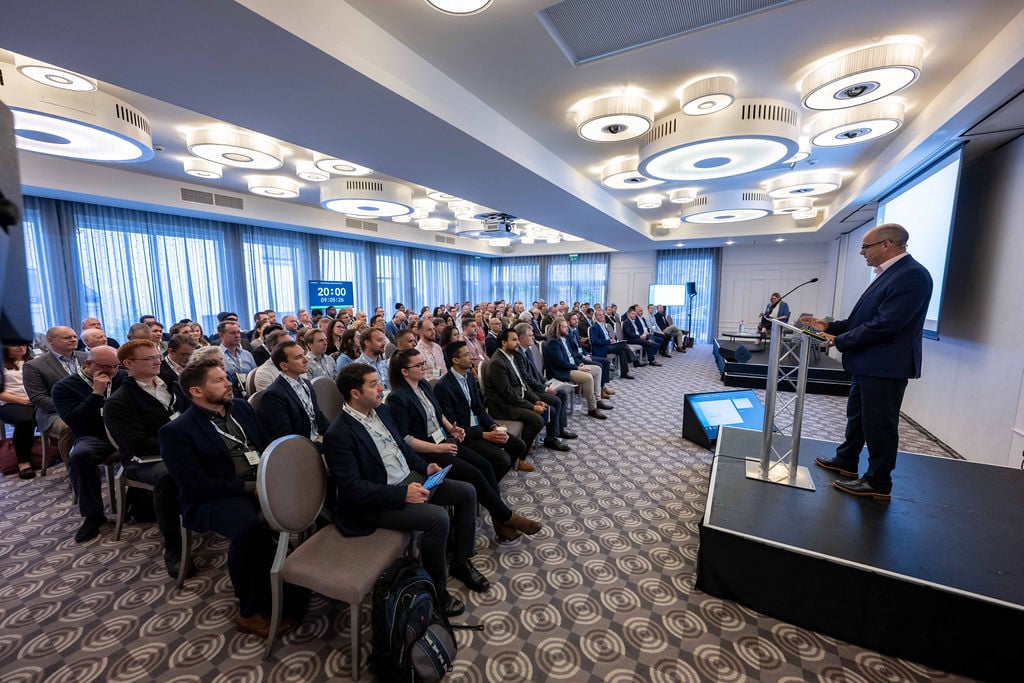NEWS & INSIGHTS | Opinion
A Week in CCS: Making storage a reality

I had the honour of chairing the first ever in-person SPE/GESGB CO2 Storage Conference, taking place in Aberdeen to a sell-out audience. Keynote speakers David Whitehouse (CEO, OEUK), Peter McFadzean (Equinor), and Michael Brawley (DESNZ), opened with cohesive insights on the need, opportunities, and implementation of CCS in the UK, highlighting:
- UK’s Readiness: The UK is well-prepared to scale CCS, supported by the cluster sequencing process, the initiation of the first CCS licensing round, and the strong capability of the existing supply chain.
- Need for Speed: Accelerating the pace of CCS deployment is crucial to meet the 2030 net-zero targets.
- Supportive Framework: Establishing a sustainable CCS industry requires an investible environment, viable business models, stable legislative and regulatory frameworks, and a long-term strategy.
A poll conducted to gauge the audience’s confidence in the development of widescale CCS revealed a sense of cautious optimism, with many expressing hope that it might be a ‘third time lucky’ for the development of a UK CCS industry.
Initiating Innovation
It was hard to squeeze in all the knowledge developing in the sector into two days of technical talks, but it did a good job to remind us of the complexities and challenges of long-term CO2 storage.
Delegates were treated to discussions on developments in major initiatives like the Northern Endurance Partnership, Northern Lights, Porthos, and Poseidon. Innovative solutions for long-term monitoring of stored CO2 continue to be a topic of interest alongside addressing challenges such as the integrity of legacy wells, material qualification, and well design. These presentations showcased the engineering skills and creativity within the industry, highlighting the commitment to delivering safe and efficient storage networks.
A £22 Billion Commitment: Paving the Way for UK CCS
The week concluded with a major announcement for the industry, with the UK Government’s pledge of £22 billion over the next 25 years. This commitment marks a pivotal moment for UK CCS, particularly for track 1 CO2 capture and storage projects, with this funding helping to expedite final investment decisions (FID) for these projects.
After a key week to mark the start of making UK CCS a reality, several questions remain:
- Track 2 Delivery: Will similar funding be available to accelerate Track 2 to meet the 2030 goals?
- Next-Generation Projects: Will projects like Morecambe Net Zero benefit from funding or will viable business models be in place to attract the required investment?
The cautious sentiment shared by the conference audience early in the week has moved forward, and while the government announcement is a positive step, clarity on funding allocation and support for future projects is essential for the UK to achieve its CCS ambitions and to shift confidence further.
As we look ahead, it’s clear that with the right support and acceleration, the UK can lead the way in CCS technology and implementation.
NZTC flying the innovation flag for the future of CCS
At the Net Zero Technology Centre (NZTC) we welcome the announcement and look forward to working with government and industry to accelerate the development and deployment of cutting-edge technologies and the infrastructure required to support the buildout of the CCS sector.
Through our Open Innovation Programme we are already working with academia, technology start-ups and tier 1 service companies that address the key challenges of well assessment and long term monitoring.
We also see a strong willingness to collaborate in areas of material and component qualification through projects like our industry led Subsurface Safety Valve (SSSV) to deliver safe and efficient storage.
With an estimated 78Gt of potential CO2 storage, existing infrastructure ready for repurposing and decades of operational experience, we want to develop offshore UK as a pan European CO2 storage hub. By working with organisations on both sides of the North Sea we are embarking on an ambitious project which will look at common infrastructure, transportation options, route optimisation, landing points and infrastructure requirements to make this a reality.
It is a really exciting time for CCS and the UK can undoubtedly position itself as a global leader, delivering decarbonisation at scale without deindustrialisation, creating a sustainable and cleaner future.
Subscribe for the latest updates




